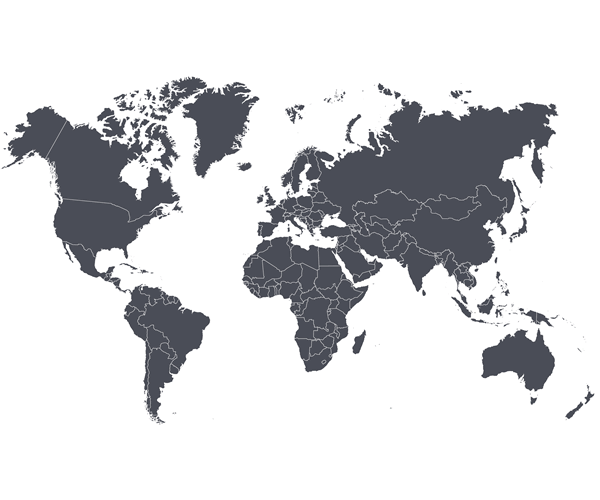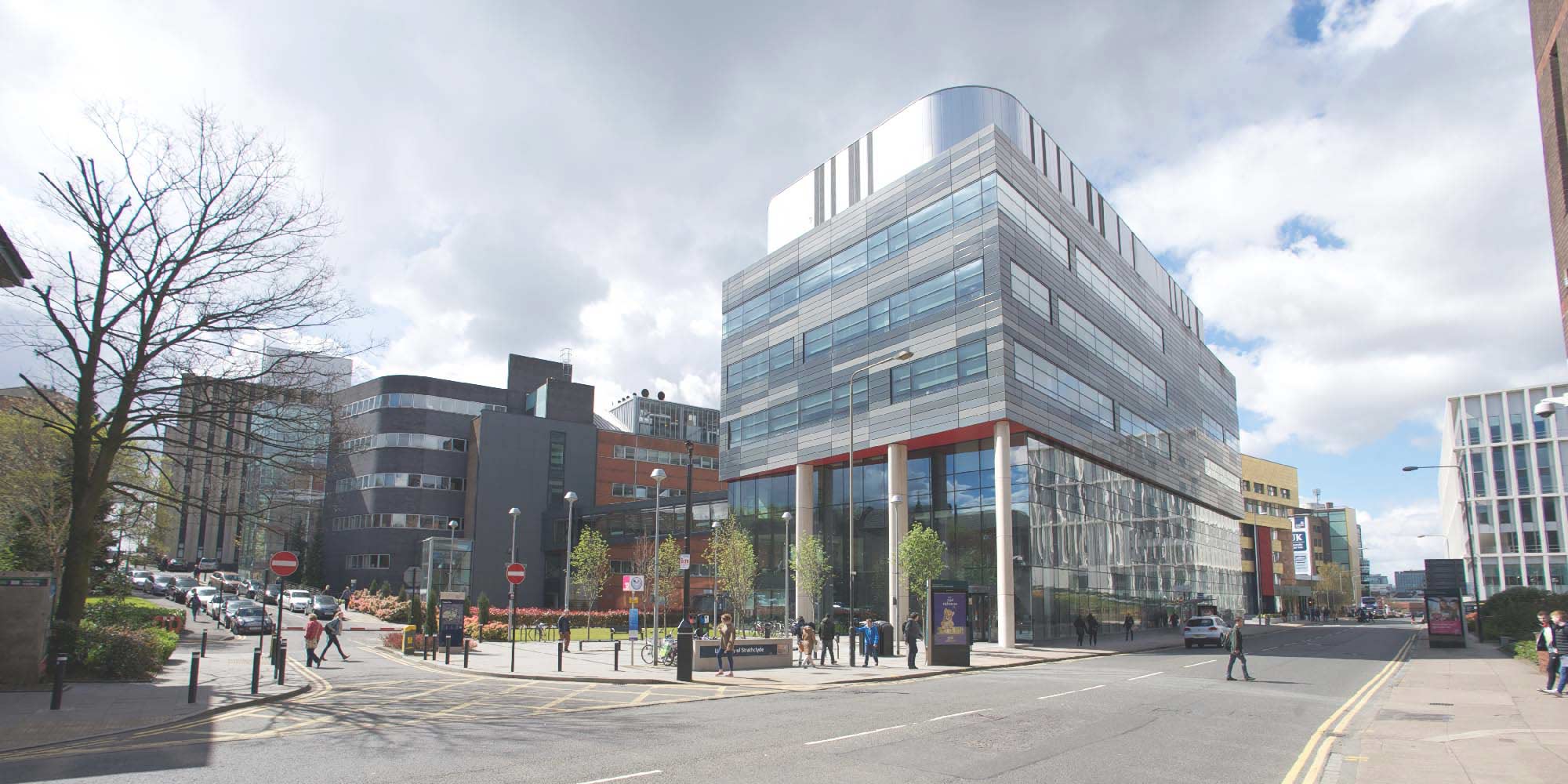MEng Computer Science
ApplyKey facts
- UCAS Code: G401
- Accreditation: BCS, The Chartered Institute for IT
Industrial placement: paid placement in the UK or abroad
Study with us
- gain an in-depth understanding of computer science required to develop sophisticated computing systems
- 12-week paid industrial placement for MEng students
- acquire excellent practical skills alongside theoretical understanding
- benefit from undertaking industry-linked projects
- gain analytical, design and communication skills and the ability to work as part of a team
Accreditation
Accredited by BCS, The Chartered Institute for IT:
- for the purposes of fully meeting the academic requirement for registration as a Chartered IT Professional
- on behalf of the Engineering Council for the purposes of fully meeting the academic requirement for registration as a Chartered Engineer
Why this course?
Computer Science demands and develops a challenging mix of skills and abilities. These include a deep understanding of the technology, creativity and imagination, logic and attention to detail, strong analytic and design skills combined with excellent communication skills and the ability to work as part of a team.
Our graduates not only understand new technologies but are able to influence their development.
All our degrees courses have strong practical and theoretical foundations. Our courses have a similar foundation in the beginning, making it possible to transfer between courses.


What you'll study
Year 1
Classes cover foundation skills, such as programming and computer systems organisation and look at the concepts of computation and information. Small-group tutorials cover personal and professional development issues. In addition, you’ll take a business technology class and an elective class.
Year 2
Subjects covered include algorithms, databases, logic, the analysis and design of large systems, and how to ensure that the systems are usable. You’ll also undertake an individual programming project and a further business technology class.
Year 3
You’ll study more specialised areas such as communications, how new programming languages can be designed, the variety of internal machine architectures, artificial intelligence, graphics, and the technologies behind web-based applications. You’ll also undertake a large group-based software development project. MEng students also study the legal aspects of computing.
Year 4
MEng students undertake a major individual practical computing project under the guidance of a member of staff, along with four final-year classes chosen from a range of specialist options.
Year 5
MEng students undertake a significant group project under the supervision of a member of staff. This project may use the industrial experience gained in the placement. In addition there is a further selection of specialist classes.
Industrial placement
Between Years 3 and 4/or Years 4 and 5, you'll undertake a 12-week paid industrial placement, working as part of a software systems development team. The placement may be in the UK or abroad.
Major projects
Several companies work with us to develop student projects, either individual or group final-year projects that is suitable for both parties.
Projects are supervised by members of academic staff with individuals from the sponsoring organisation providing occasional advice and feedback.
Facilities
We have three large undergraduate teaching laboratories plus a restricted-access laboratory (primarily for fourth and fifth-year students). There are printers in each main lab. All departmental machines are linked by a high-speed local area network and operate under a single network file system so you can access your files from any of our machines.

The staff are so genuinely passionate about their subject and will do everything to give you the best studying experience.
Compulsory Modules
Semester 1 & 2
Machines, Languages & Computation (20 credits)
This module will help you achieve a broad knowledge of the essence of computation and computational systems, as embodied by the notions of computable functions, formal languages and recursion, logic and computability and abstract machines.
Information & Information Systems (20 credits)
This module will help you understand a broad knowledge of information systems and how information is created, used and disseminated within an information society.
Programming Foundations (20 credits)
This module will provide you with a solid foundation in the principles of computer programming. On completing this module you should have the necessary skills to be able to design, build and test a small system in a high-level language (Java in the current incarnation of the module).
Computer Systems & Organisation (20 credits)
Semester 1: you'll develop an understanding and appreciation of a computer system's functional components – both hardware and software, their characteristics, their interactions, and their fundamental role in the manipulation of data.
Semester 2: you'll further your knowledge of the design parameters of a typical computer system and the impact these have on the functionality, and implementation, of the hardware and software components.
Topics in Computing 1 (20 credits)
This module will help you to develop a broader perspective of computer science and to develop problem solving, team working, presentational skills, as well as personal and professional development skills.
Semester 1
Introduction to Business Analysis & Technology (10 credits)
This module will help raise awareness of the real-world problems encountered by industry that can be solved through Management Science methodology. You'll:
- develop an understanding of the tools and techniques used by business analysts
- highlight the integrative role of technology within organisations
- demonstrate the dynamic nature of technology
Elective Module (10 credits)
In first year most students take an elective module, from a range of topics are offered, normally by other departments, to give a taste of other subjects and broaden your curriculum.
Compulsory Modules
Semester 1 & 2
Advanced Programming (20 credits)
This module will further your skills in object-oriented programming, provide knowledge of key abstract data types along with their implementation and usage, and provide experience in the development of larger scale software and an introduction to design.
Your main goal is to be able to develop larger programs with specialised data structures and utilising APIs from a specification, and be able to ensure and show how the system they developed matches the specification.
Logic & Algorithms (20 credits)
This module will equip you with the tools to model and measure computation. To build on the module Machines, Languages and Computation, and develop further understanding of the mathematical foundations of computation. To foster an analytical and empirical appreciation of the behaviour of algorithms and the use of abstract data types.
User & Data Modelling (20 credits)
This module will provide you with a critical appreciation and understanding of how to model user activities and the data to support them, together with how to implement systems and databases to support user activities.
Computer Systems & Architecture (20 credits)
This module will allow you to develop a deeper understanding of typical computer architectures and their instruction sets and the complex tradeoffs between CPU clock speed, cache size, bus organisation, number of core processors, etc, that influence their design and have a fundamental impact on their performance.
Semester 1
Professional Issues in Computing (10 credits)
This module will ensure you're aware of the legal, social, ethical and professional issues commensurate with the practice of Information Systems Engineering.
Quantitative Methods in Computer Science (10 credits)
This module will teach the quantitative and numerical methods that underpin modern Computer Science, such as (but not restricted to) Artificial Intelligence and Data Analytics. The module will also provide students with the numerical methods needed to perform quantitative evaluations of algorithms and software.
Functional Thinking (10 credits)
This module will introduce the core concepts and methods of modern functional programming.
Elective Module (10 credits)
In second year most students take an optional module, from a range of topics are offered, normally by other departments to give a taste of other subjects and broaden your curriculum.
Compulsory Modules
Semester 1
Building Software Systems (20 credits)
This module will extend and deepen your understanding of the analysis, design and implementation of software systems; to provide further experience in the activity of designing and implementing non-trivial systems; and to enable you to demonstrate practical competence in a group environment.
Your goal is the development in a group setting of significant systems from scratch aiming not just at any solution but a good solution, and to be introduced to more general Software Engineering topics.
Functional Programming (20 credits)
The module aims to provide you with skills in basic functional programming and experience in integrated deployment of those skills.
Web Applications Development (20 credits)
This module will give you an understanding of the technologies used in the development of N-tier Internet-based applications.
Semester 2
Computer Systems & Concurrency (20 credits)
This module will allow you to develop a deeper understanding of highly concurrent hardware and software systems. The module will also further your knowledge of the need for, and the design and implementation of, those other vital hardware and software components of a concurrent system, namely multiprocessors and their interconnections, operating systems and networks.
The interactions between many of these components will be investigated by means of significant practical work that consolidates the lecture content in the context of: (i) multiprocessor architectures, (ii) concurrency, (iii) protection and security and (iv) networked and concurrent applications. Software developed in appropriate programming languages will form the basis of much of the practical work thus enabling the student to enhance their software design and implementation skills in this domain.
Mobile App Development (20 credits)
The module will provide you with a good understanding of the issues in developing for mobile environments, approaches to handling these issues and skills in developing for a widespread mobile platform.
Foundations of Artificial Intelligence (20 credits)
This module will help to give you a broad appreciation of the scale and nature of the problems within Artificial Intelligence and to a detailed understanding of some of the fundamental techniques used to address those problems.
Compulsory Modules
Semester 1 & 2
Individual Project (40 credits)
This module will allow you to demonstrate practical and documentary competence. You'll also be expected to give a demonstration of your work.
Semester 1
Computer Security (20 credits)
The aim of this module is to provide you with the opportunity to develop a security mind-set by introducing you to core material in the area of computer security. This should enable you to identify potential threats and vulnerabilities for a range of situations, and propose appropriate actions to mitigate these issues.
Industrial Placement 1 (20 credits)
The placement enables you to experience the application of aspects of your degree course in an industrial context and the group work which such experience requires.
You will normally do a three month placement between third and fourth year (Industrial Placement 1). In addition you may elect to take a second placement between fourth and fifth year (Industrial Placement 2) which is 20 credits.
Elective Module
You should pick four of the following modules.
Semester 1
Software Architecture & Design (20 credits)
This module aims to:
- enable you to understand the challenges of advanced software design and the issues associated with large-scale software architectures, frameworks, patterns and components
- develop your understanding of the tools and techniques that may be used for the automatic analysis and evaluation of software
Project Management (20 credits)
This module will familiarise you with the basic concepts associated with project management. It is designed around seven main areas:
- Project Management Basics
- Setting Objectives and Defining Project Deliverables
- Work Breakdown, Structures and Milestones
- Project Planning
- Project Finance
- Risk Management
- Project Strategies
These areas will provide you with a general understanding of project management that will complement your studies in other areas of the course, such as management finance and strategy, where the execution of company strategy may require the use of project management techniques.
Semester 2
Advanced Functional Programming (20 credits)
This module will provide you with further skills in functional programming and an appreciation of the mathematical structures which underpin powerful general programming concepts and techniques.
Theory of Computation (20 credits)
Building on the previous material in software development, you'll extend and formalise your abilities in the area of computational complexity.
Information Access & Mining (20 credits)
This module will allow you to understand the fundamentals of information access and information mining. The module will cover a range of techniques for extracting information from textual and non-textual resources, modelling the information content of resources, detecting patterns within information resources and making use of these patterns.
Human Centred Security (20 credits)
This module will focus on making you more aware of human-centred security design.
Compulsory Modules
Semester 1 & 2
Group Project (40 credits)
The aim is to give you "real-world" experience in team working and group project management by participating in a sustained and significant group-based project within the CIS domain. Working in project teams of three or four, you're expected to convert a given specification into an appropriate deliverable. Following initial liaison with supervisors, the student team is primarily responsible for all aspects of the project development including initial research, planning, design, implementation and reporting to supervisors.
This module presents you with the opportunity to consolidate and enhance your technical skills, and also develop generic softer skills such as team working, negotiation, budgeting, sourcing and purchasing, project planning and management, and communication.
Elective modules
You should pick four of the following modules.
Semester 1
Industrial Placement 2 (20 credits)
You may elect to take this second placement between fourth and fifth year. The placement is 100% assessed on the basis of a short presentation made to staff and fellow students at the start of the year. The presentation will be marked by two assessors from the department.
Big Data Technologies
20 credits
In this module you will learn to:
- understand the fundamentals of Python to enable the use of various big data technologies
- understand how classical statistical techniques are applied in modern data analysis
- understand the potential application of data analysis tools for various problems and appreciate their limitations
- be familiar with a number of different cloud NoSQL systems and their design and implementation, showing how they can achieve efficiency and scalability while also addressing design trade-offs and their impacts
- be familiar with the Map-Reduce programming paradigm
Advanced Topics in Software Engineering (20 credits)
The module will introduce you to a selection of recent advances in software engineering, along with some of the challenges and outstanding problems.
The detailed aims of the module are:
- To make you aware of key aspects of current software engineering research
- To familiarise you with the state-of-the-art in terms of what problems can be solved and what are the current exciting challenges
- To develop the necessary skills to allow you to contribute to the software engineering research community
- To equip you with the skills and background to appreciate the contributions to software engineering research across the full range of material presented at the key international conferences in the field
Designing Usable Systems (20 credits)
To develop research level understanding of the design of interfaces for newly emerging technologies and computing domains such as ubiquitous and mobile computing, universal access and collaborative displays.
Semester 2
Machine Learning for Data Analytics (20 credits)
The aim of this module is to equip you with a sound understanding of the principles of machine learning and a range of popular approaches, along with the knowledge of how and when to apply the techniques. The module balances a solid theoretical knowledge of the techniques with practical application via Python (and associated libraries) and students are expected to be familiar with the language. Aspects of the course will be highly mathematical and technical requiring strong math and programming ability (Python and Tensorflow).
Distributed Information Systems (20 credits)
This module will help you to gain an extended understanding of the deep technical issues underlying information systems in the particular context of distributing content over the world-wide web.
Mobile Software and Applications (20 credits)
The aim of this module is to develop an understanding of the underpinning theories, paradigms, algorithms and architectures for building software applications to function in mobile computing environments.
Learning & teaching
Learning and teaching methods aim to help you gain knowledge and understanding as well as the development of intellectual skills (problem-solving and critical evaluation skills), practical skills (designing and implementing a software system, team-working skills) and transferable skills (investigative skills, presentation skills, report-writing skills, time management skills, independent learning skills).
Knowledge and understanding are gained through lectures and supported in tutorials or laboratories, and individual and group project work. You’ll be encouraged to read and research independently to help broaden your understanding of the subject.
You’ll develop intellectual skills through weekly laboratory or tutorial exercises. You’ll be set challenging problems while further coursework and group and individual projects will help you enhance your skills.
You’ll learn practical skills through lectures, tutorials, laboratory, coursework and project work.
Assessment
Your knowledge and understanding, intellectual, practical and transferrable skills are tested through unseen written exams, laboratory submissions, coursework and project reports and presentations.

The University of Strathclyde and, more specifically, their Computer Science Department really sets you up for your own ambitions and helps you to make them a reality. Some of my colleagues had the ambition of becoming Doctors in Computer Science, which the Department also helped them with.
MEng Computer Science Student
Glasgow is Scotland's biggest & most cosmopolitan city
Our campus is based right in the very heart of Glasgow. We're in the city centre, next to the Merchant City, both of which are great locations for sightseeing, shopping and socialising alongside your studies.
Life in Glasgow
Entry requirements
Required subjects are shown in brackets.
| Highers |
Year 1 entry: AAAA/AAABB (Maths B, Computing Science recommended) ABBBB/AABB (Maths B) |
|---|---|
| A Levels | Standard entry requirements*: BBB (Maths, Computer Science is recommended) |
| International Baccalaureate | Standard entry requirements*: Year 1 entry: 30 (Maths HL5, Computer Science recommended) |
| HNC/HND | Entry is to BSc (Honours) Computer Science or BSc (Honours) Software Engineering in the first instance |
| International students | View the entry requirements for your country. |
| Deferred entry | Not accepted |
*Standard entry requirements
Offers are made in accordance with specified entry requirements although admission to undergraduate programmes is considered on a competitive basis and entry requirements stated are normally the minimum level required for entry.
Whilst offers are made primarily on the basis of an applicant meeting or exceeding the stated entry criteria, admission to the University is granted on the basis of merit, and the potential to succeed. As such, a range of information is considered in determining suitability.
In exceptional cases, where an applicant does not meet the competitive entry standard, evidence may be sought in the personal statement or reference to account for performance which was affected by exceptional circumstances, and which in the view of the judgement of the selector would give confidence that the applicant is capable of completing the programme of study successfully.
**Minimum entry requirements
Contextual Admissions for Widening Access
We want to increase opportunities for people from every background.
Strathclyde selects our students based on merit, potential, and the ability to benefit from the education we offer. We look for more than just your grades. We consider the circumstances of your education and will make lower offers to certain applicants as a result.
University preparation programme for international students
We offer international students (non-UK/Ireland) who do not meet the academic entry requirements for an undergraduate degree at Strathclyde the option of completing an Undergraduate Foundation Programme in Business and Social Sciences at the University of Strathclyde International Study Centre.
Upon successful completion, you can progress to your chosen degree at the University of Strathclyde.
International students
We've a thriving international community with students coming here to study from over 140 countries across the world. Find out all you need to know about studying in Glasgow at Strathclyde and hear from students about their experiences.
Visit our international students' section
Fees & funding
All fees quoted are for full-time courses and per academic year unless stated otherwise.
Fees may be subject to updates to maintain accuracy. Tuition fees will be notified in your offer letter.
All fees are in £ sterling, unless otherwise stated, and may be subject to revision.
Annual revision of fees
Students on programmes of study of more than one year (or studying standalone modules) should be aware that tuition fees are revised annually and may increase in subsequent years of study. Annual increases will generally reflect UK inflation rates and increases to programme delivery costs.
| Scotland |
Fees for students who meet the relevant residence requirements in Scotland are subject to confirmation by the Scottish Funding Council. Scottish undergraduate students undertaking an exchange for a semester/year will continue to pay their normal tuition fees at Strathclyde and will not be charged fees by the overseas institution. |
|---|---|
| England, Wales & Northern Ireland | £9,250 Assuming no change in fees policy over the period, the total amount payable by undergraduate students will be capped. For students commencing study in 2024/25, this is capped at £27,750 (with the exception of the MPharm and integrated Masters programmes), MPharm students pay £9,250 for each of the four years. Students studying on integrated Masters degree programmes pay an additional £9,250 for the Masters year with the exception of those undertaking a full-year industrial placement where a separate placement fee will apply. |
| International | £24,650 |
| University preparation programme fees | International students can find out more about the costs and payments of studying a university preparation programme at the University of Strathclyde International Study Centre. |
| Additional costs | There is no charge for lecture notes or equipment. Students are supplied with 500 free print units - but must purchase any additional units. However, most coursework is submitted electronically. Books are recommended, but not a compulsory purchase. The department ensures that the University library is stocked with copies of textbooks. International studentsInternational students may have associated visa and immigration costs. Please see student visa guidance for more information. |
| Available scholarships | Take a look at our scholarships search for funding opportunities. |
Please note: All fees shown are annual and may be subject to an increase each year. Find out more about fees.
How can I fund my studies?
Students from Scotland
Fees for students who meet the relevant residence requirements in Scotland, you may be able to apply to the Student Award Agency Scotland (SAAS) to have your tuition fees paid by the Scottish government. Scottish students may also be eligible for a bursary and loan to help cover living costs while at University.
For more information on funding your studies have a look at our University Funding page.
Students from England, Wales & Northern Ireland
We have a generous package of bursaries on offer for students from England, Northern Ireland and Wales:
You don’t need to make a separate application for these. When your place is confirmed at Strathclyde, we’ll assess your eligibility. Take a look at our scholarships search for funding opportunities.
International Students
We have a number of scholarships available to international students. Take a look at our scholarship search to find out more.
Careers
Demand for our Computing Science graduates is high and employment opportunities are varied, with good earning potential. You can choose from a career in research, software development, consultancy and business analysis, with companies such as Microsoft, Oracle, Logica and Kana.
Career opportunities are not limited to technology. The problem solving, creative and personal skills, you’ll develop are of benefit in their own right and much sought after by employers in other industries.
How much will I earn?
The average salary of graduates in full-time work is £25,000. However, your earning potential will depend on your job and the industry you work in.
With experience, web developers can earn up to £38,500, software engineers up to £49,000, while project managers can earn up to £75,000.*
Job options**
A computing degree opens up a range of IT careers from applications development to web design.
Roles directly related to your degree include:
- Application analyst
- Applications developer
- Cyber security analyst
- Data analyst
- Forensic computer analyst
- Game designer
- Games developer
- Machine learning engineer
- Penetration tester
- Software engineer
- Systems analyst
- UX designer
- Web designer
- Web developer
Roles where your degree would be useful include:
- Business analyst
- IT sales professional
- IT trainer
- Nanotechnologist
- Network engineer
- Telecommunications researcher
*Information is intended only as a guide
Apply
Start date:
Computer Science (1 year entry)
Start date: Sep 2024
Computer Science (1 year entry)
Have you considered?
We've a range of courses similar to this one which may also be of interest.

